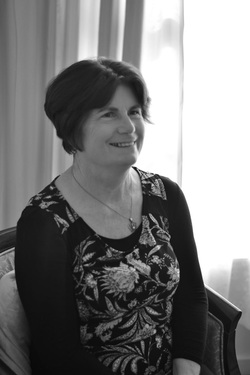Domestic violence: women are likelier to need help
CARMEL O’BRIEN
|
Bettina Arndt (“Always beating up on men,” The Weekend Australian, August 20) is concerned about the “domestic violence industry” that is promoting an “alarmist reaction in the hope of attracting greater funding”.
I managed a general community counselling program where staff were specially trained to respond respectfully to disclosures of violence.
In 14 years, overseeing more than 50,000 counselling appointments, only a handful of men presented as victims of domestic violence.
By contrast, about half of those counselling appointments were for women and children surviving domestic violence, often ongoing.
Many male and female clients struggling with other issues revealed that they had grown up witnessing domestic violence, which underpins much psychological distress and is an enormous cost to the community, mostly hidden in the costs of the health and judicial systems.
The support given or requested for domestic violence prevention and services is not a trumped-up “industry” that somehow gratifies those who work in it.
How insulting to the thousands of women and children seeking safety and support, and how insulting to the many skilled workers dealing daily with horror and devastation, often for very low wages.
All victims deserve support, and the community response to this issue must be based on evidence.
What is evident is that women are four to five times likelier to be murdered, eight to nine times likelier to be hospitalised and many times likelier to require support to escape and recover.
To really understand what is needed, the community must learn from those who know most about domestic violence and what is most effective: survivors, police members and specialist domestic violence workers and researchers.
Carmel O’Brien has spent more than two decades working as a counselling psychologist and domestic violence specialist. Her book Blame Changer: Understanding Domestic Violence, is out in October.
Find out more about Carmel
I managed a general community counselling program where staff were specially trained to respond respectfully to disclosures of violence.
In 14 years, overseeing more than 50,000 counselling appointments, only a handful of men presented as victims of domestic violence.
By contrast, about half of those counselling appointments were for women and children surviving domestic violence, often ongoing.
Many male and female clients struggling with other issues revealed that they had grown up witnessing domestic violence, which underpins much psychological distress and is an enormous cost to the community, mostly hidden in the costs of the health and judicial systems.
The support given or requested for domestic violence prevention and services is not a trumped-up “industry” that somehow gratifies those who work in it.
How insulting to the thousands of women and children seeking safety and support, and how insulting to the many skilled workers dealing daily with horror and devastation, often for very low wages.
All victims deserve support, and the community response to this issue must be based on evidence.
What is evident is that women are four to five times likelier to be murdered, eight to nine times likelier to be hospitalised and many times likelier to require support to escape and recover.
To really understand what is needed, the community must learn from those who know most about domestic violence and what is most effective: survivors, police members and specialist domestic violence workers and researchers.
Carmel O’Brien has spent more than two decades working as a counselling psychologist and domestic violence specialist. Her book Blame Changer: Understanding Domestic Violence, is out in October.
Find out more about Carmel

